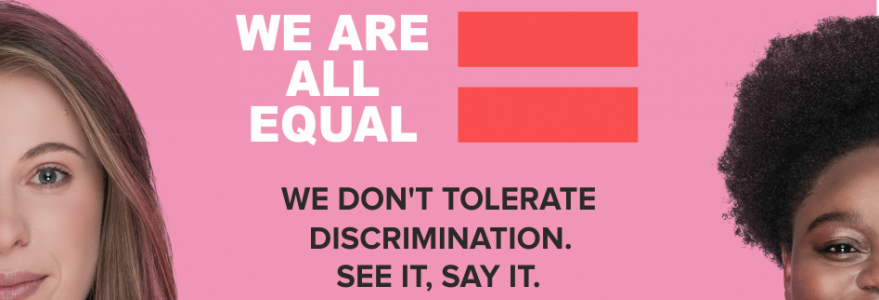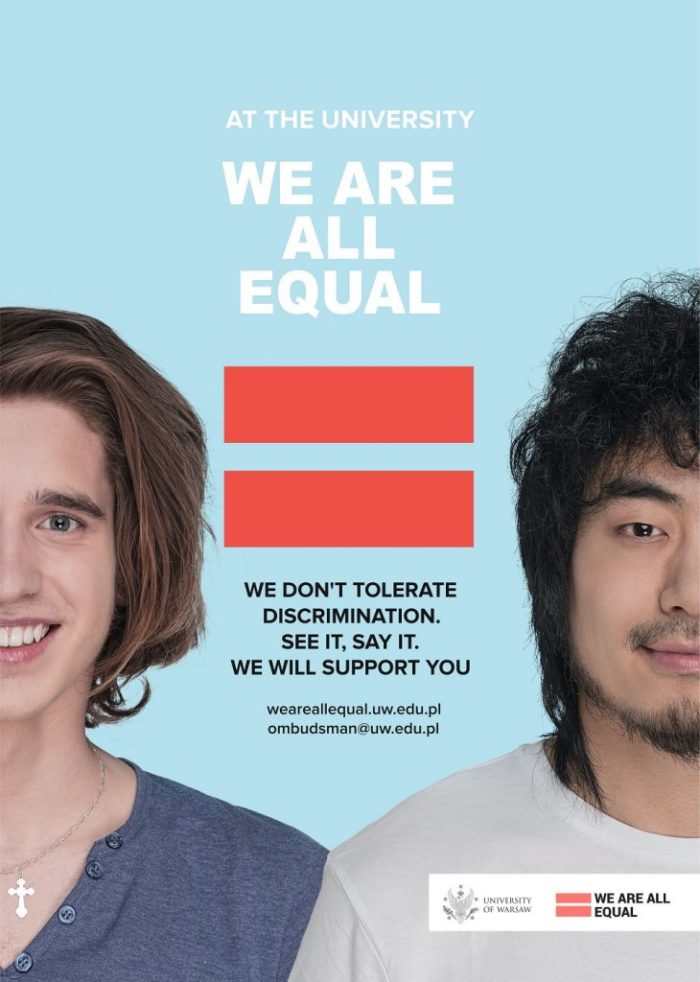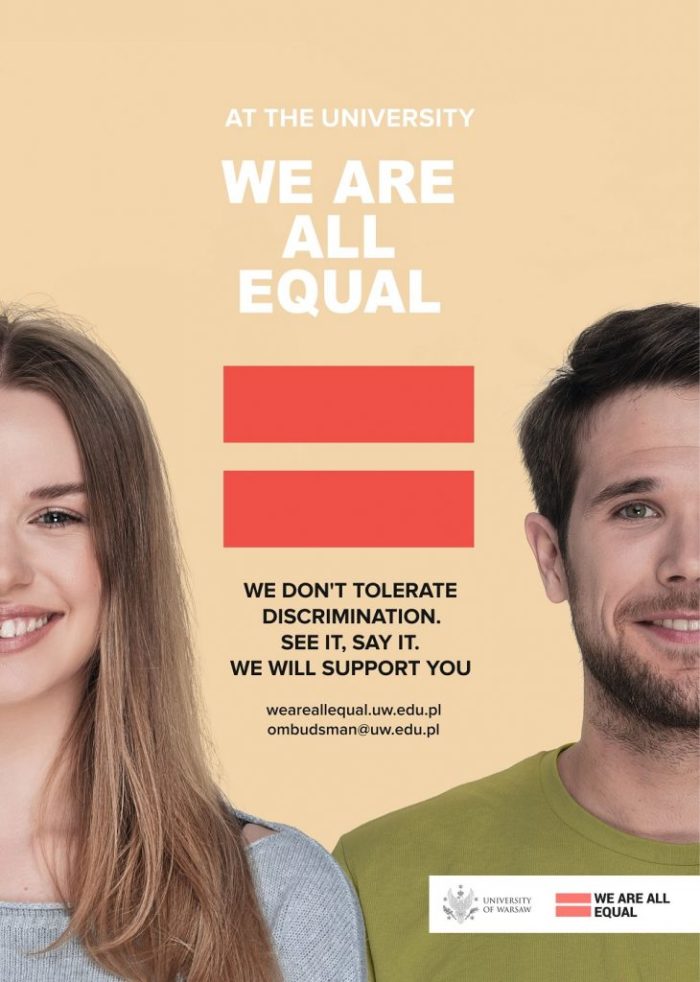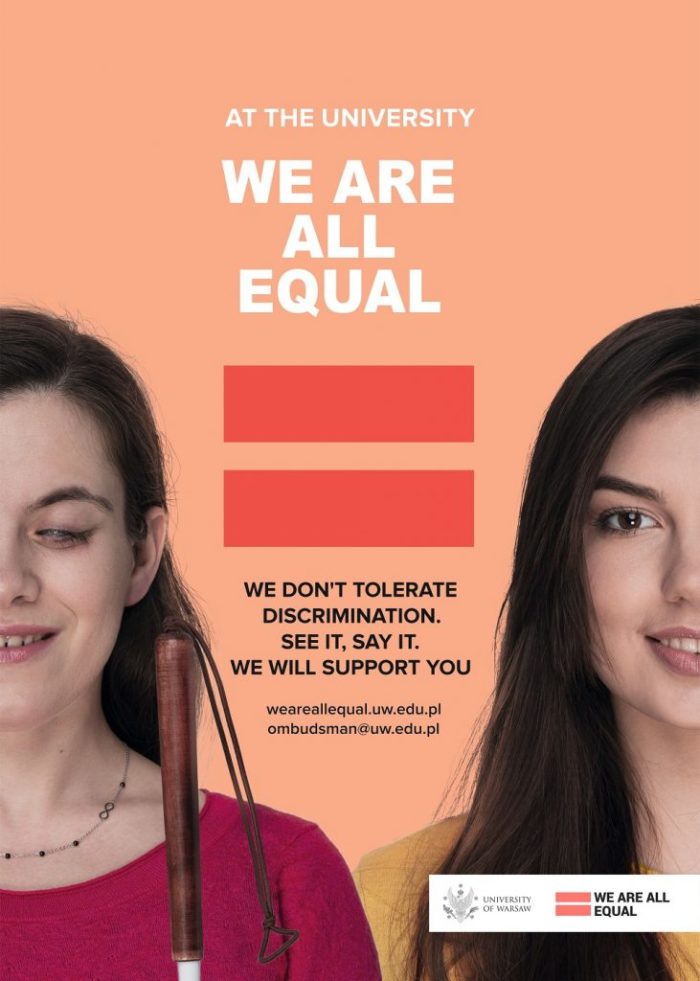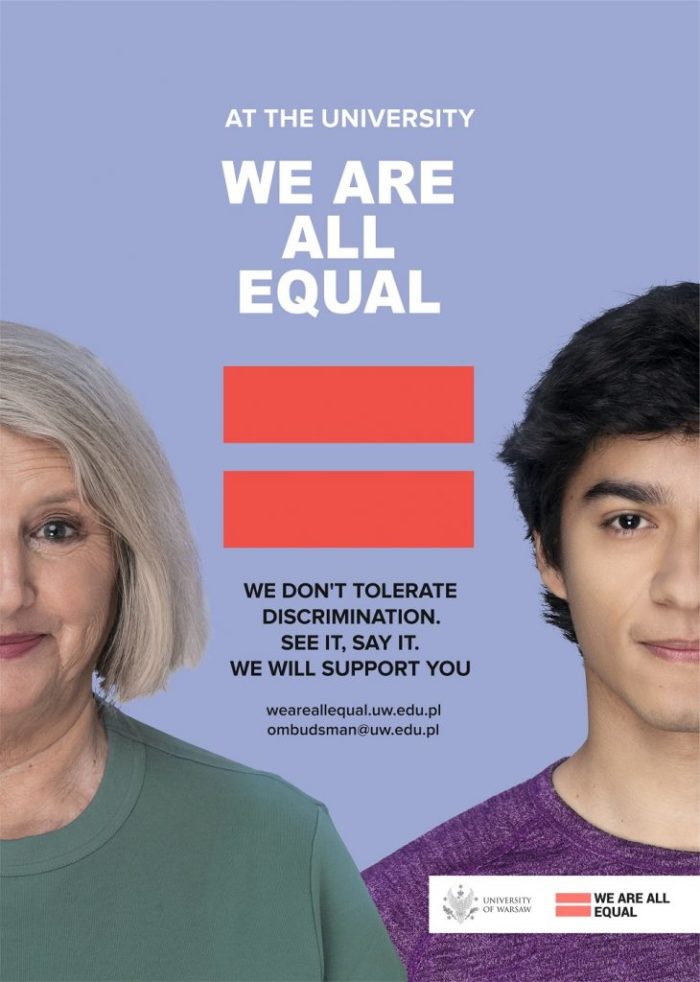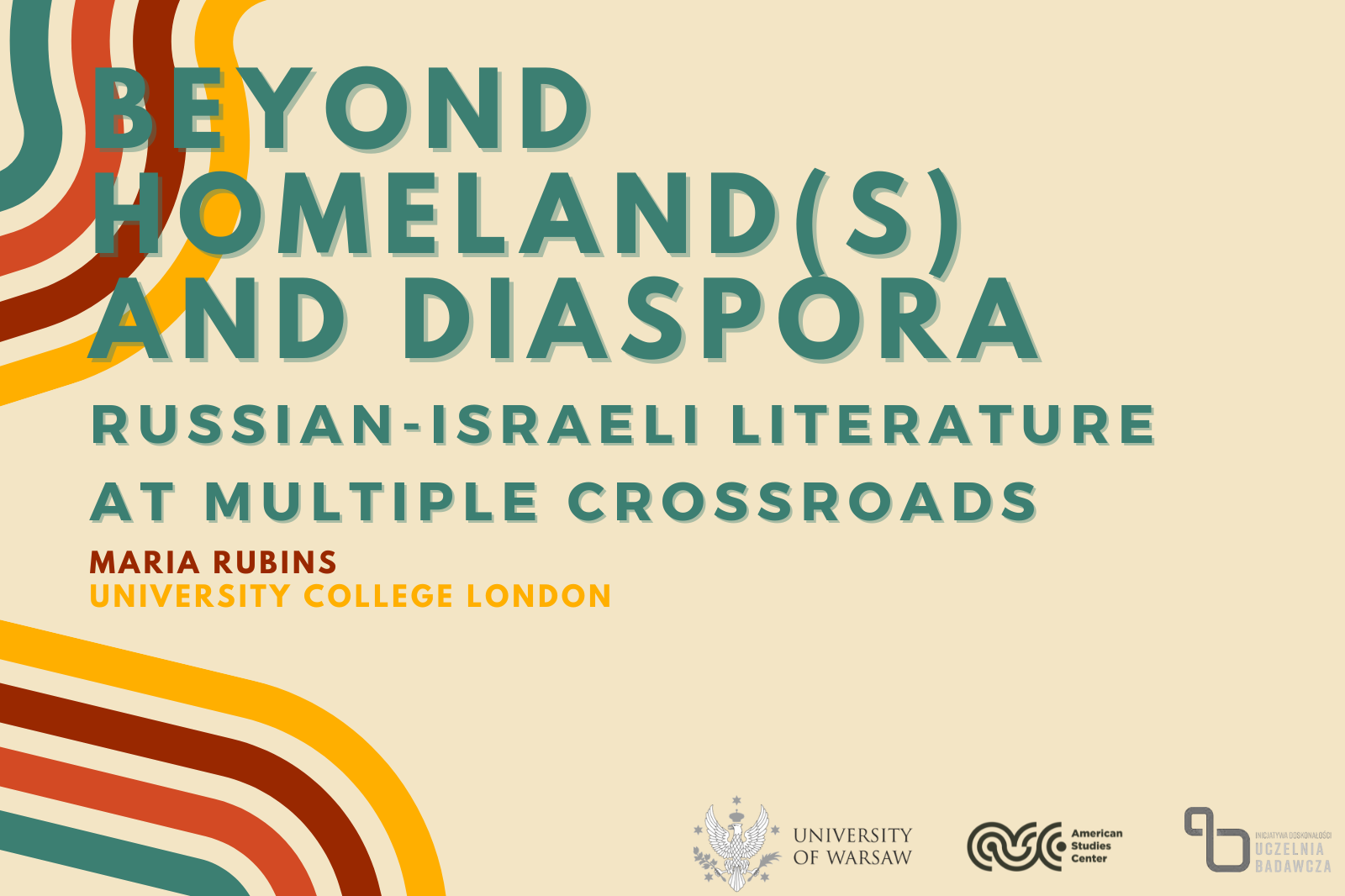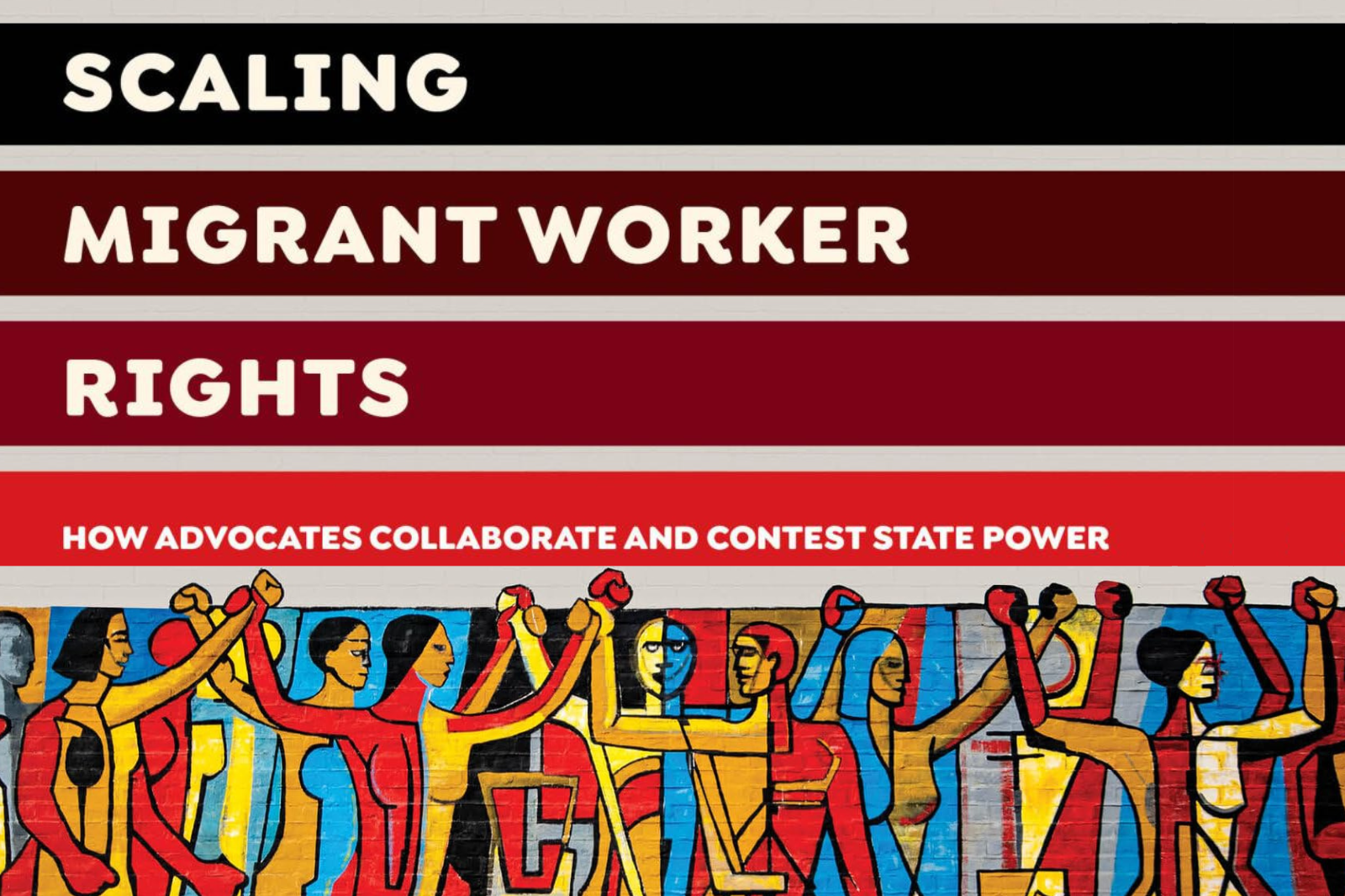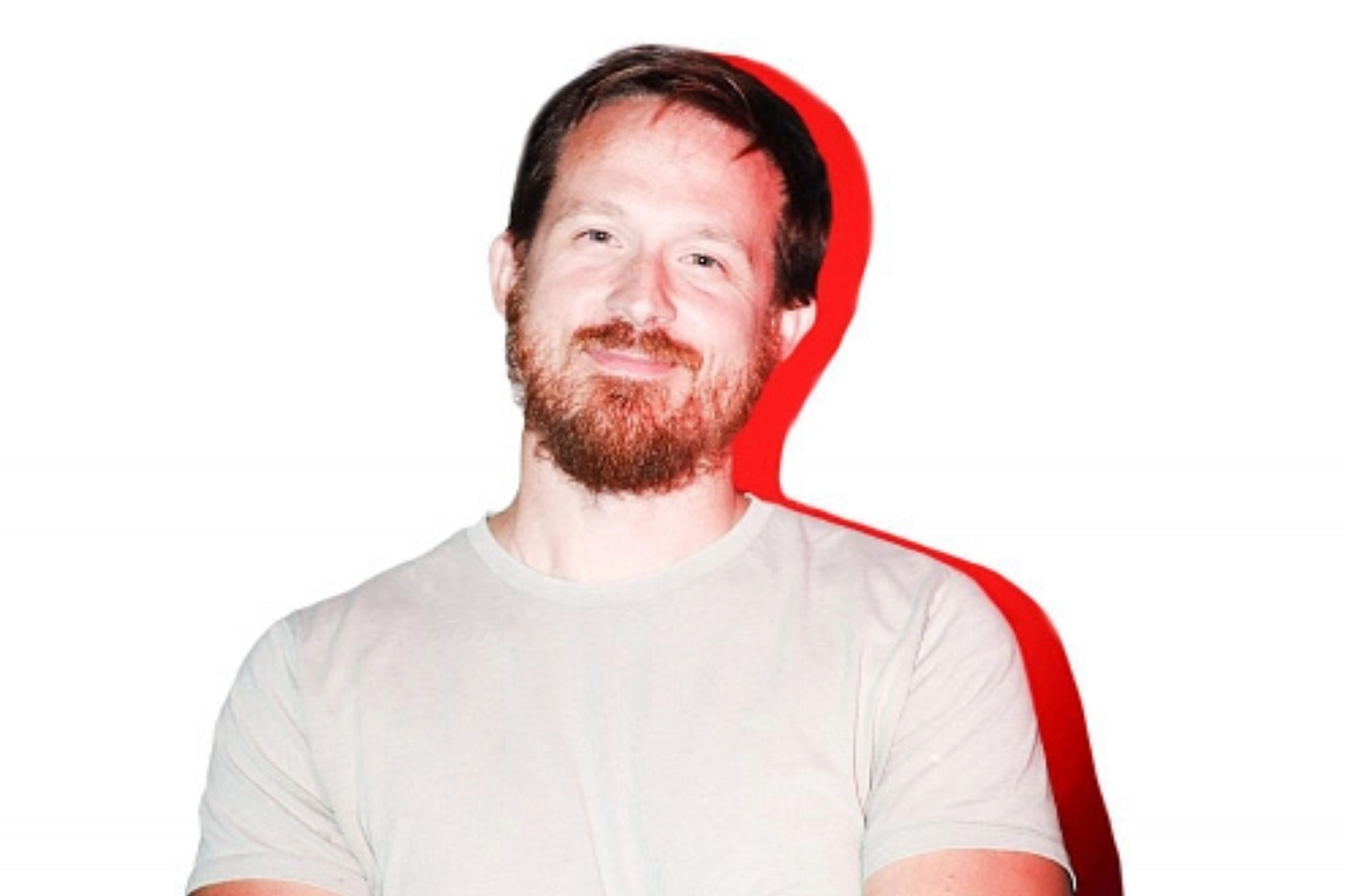In October, the “We Are All Equal” social campaign has been launched. It aims to emphasize the diversity of the UW community and equality among its members.
The University of Warsaw is a place where there is no room for any kind of discrimination. We strive to create a friendly, peaceful, and safe atmosphere where everyone, regardless of their nationality, gender, age, disability, sexual orientation, and religion, will feel comfortable.
People who experience discrimination will find support at the university. In 2011, the University of Warsaw appointed its ombudsman, a fully independent and neutral university officer, to whom students, faculty, and administrative staff may turn for assistance in matters related to the university and its community, informally and confidentially. The ombudsman supports the staff and students in problem-solving and sees to it that all members of the academic community are treated fairly and honestly. Since 2016, UW has its Equal Opportunity Chief Specialist who is engaged in anti-discrimination policy, equal treatment, and diversity at our University. This person takes steps to fully respect and implement the principle of equal treatment, and to prevent discrimination. At the University of Warsaw, there is also the Rector’s Committee for Preventing Discrimination. More information >>
The “We Are All Equal” campaign consists of a set of posters and social media activities. Materials will also appear on university websites and fan pages. Members of our community, representing groups particularly at the risk of discrimination and unequal treatment, featured in a video.
The campaign aims to raise awareness of discrimination, hate speech, mobbing, and how to counteract these phenomena.
The campaign was created in cooperation with many university units. The UW Promotion Office, the project coordinator, organised it in close cooperation with Dr. Anna Cybulko (academic ombudsman), Dr. Julia Kubisa (equal opportunity chief specialist), and Magdalena Miksa (anti-mobbing coordinator).
The campaign is part of the activities implementing the European Charter for Researchers and the HR Excellence in Research strategy at the University of Warsaw. The strategy includes the implementation of activities in the area of equal treatment and increasing knowledge and awareness in the field of anti-discrimination.
